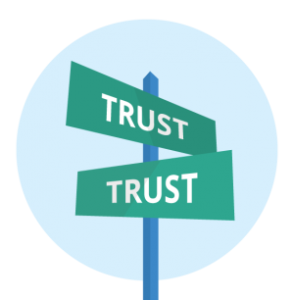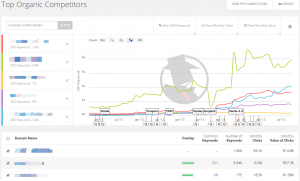Small businesses need time and context to evaluate traffic retention, quality backlinks and conversion rates.
Small business owners increasingly understand that website success depends on developing and implementing an SEO strategy.
More than one-third (36%) of small businesses already have an SEO strategy, and an additional 23% plan to develop one in 2019, according to a recent Clutch survey.
While many small business owners understand they need an SEO strategy, many of them struggle to create one that is effective and comprehensive.
To develop and maintain an effective long-term SEO strategy, small business owners need to know the best ways to measure their SEO success.
To understand if your SEO strategy is working, you need to measure efforts that provide context about how your SEO impacts your business. Three metrics, in particular, are useful:
- Traffic retention
- Backlink quality
- Conversion rate
How small businesses currently measure SEO success
Currently, small businesses rely on traffic as the primary barometer of SEO success.

Solely focusing on traffic, though, risks missing more important metrics. Instead, your business needs to consider the quality of your traffic and whether it represents legitimate business opportunities.
“You can have a lot of traffic, but is it relevant? Does it convert?” said Garry Grant, chief executive officer of SEO Inc., an SEO company in California. “There’re so many other factors.”
Tracking metrics that measure context and align with your objectives give your small business the best insight about the success of their SEO.
1. Traffic retention measures the quality of search audiences
To measure the quality of the traffic you earn from search, small businesses can use Google Analytics to determine its traffic retention. This tells you if your SEO efforts are bringing in the right audiences.
Two metrics in particular that help to determine the quality of your search traffic are bounce rate and scroll depth.
Bounce rate is the measure of searchers who visited one page on your site but left without browsing further. A high bounce rate could signal that your site needs work to keep visitors engaged, perhaps with links to related posts or other items of interest.
Search Engine Land columnist John E. Lincoln recommends tracking the bounce rate by landing page to see which ones tend to lose visitors and which ones keep them on the site.
Remember, as Moz points out, that sometimes bounce rate can be an indication that visitors found what they were looking for right away.
To make sure that audiences are substantively engaging with your site content, measure scroll depth to determine how far visitors scroll down individual web pages. Scrolling through your entire page indicates that your content addresses the topic site audiences are interested in.
Breaking down your traffic retention data also is a good way to analyze the effectiveness of your keyword targets.
One reason your bounce rate is high or scroll depth is low may be that you are targeting the wrong keywords for those pages.
2. Backlink quality determines impact of inbound links
Inbound links to your site indicate authority about a topic. As such, you want the actual authority of those links to be from quality sources.
Backlink quality is measured by the number of links from websites with high domain authority (DA).
Keep in mind these key points about backlink quality:
- Relevance: The more pertinent the site linking to you is to your content, the stronger the endorsement of your content. For example, a link from Search Engine Land indicates authority about an SEO-related topic.
- Novelty: Has this site linked to you in the past? Endorsements from new domains can have more impact than a familiar site that has linked to you many times in the past.
While you can’t control all of the links that come to your site, you can target backlink quality via outreach to journalists or guest posting. Your targets should include sites that provide domain authority, relevance to your website, and a new audience.
3. Conversion rate offers insight about the effectiveness of your SEO strategy
To measure SEO success, you need to be clear about your goals for website traffic. Use conversion rates to measure how well you are achieving those goals as you can better define the scope of your SEO and gauge its success.
SEO success is more than merely generating as many leads as possible from search. What’s more important is the quality of those leads. Measuring conversion rate provides insight into whether the leads you attract demonstrate interest in your company.
Broadly speaking, your conversion rate is the number of website visitors who become paying customers. By tracking this, small businesses measure the impact their SEO is having on revenue.
Keep in mind that your conversion rate doesn’t have to measure the number of leads that actually convert on a purchase. Conversions, instead, can represent the desired action – for example, visiting a product description page.
Small businesses need time and context to earn and measure SEO success
Developing and implementing a comprehensive and long-range SEO strategy does not happen overnight.
“Business owners are impatient, says John Vuong, founder of Local SEO Search, a small business SEO company in Toronto. “They’re investing X amount and they’re so used to seeing an immediate return like flyers and newspapers, but SEO is a long-term game.”
Knowing and tracking the right metrics for SEO success is a critical step towards winning that game.
Opinions expressed in this article are those of the guest author and not necessarily Marketing Land. Staff authors are listed here.
Marketing Land – Internet Marketing News, Strategies & Tips
(29)











